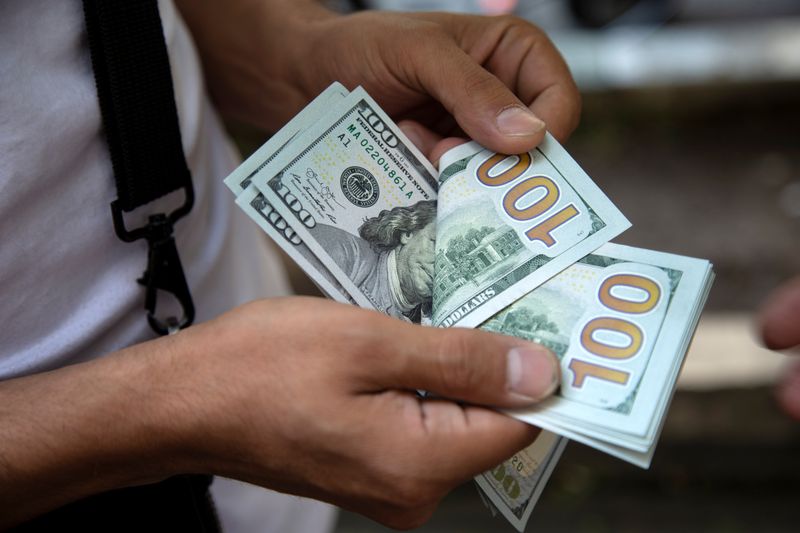By Gina Lee
Investing.com – The dollar was up on Wednesday morning in Asia, at its highest level since the COVID-19 pandemic began and set for its best month since 2015. The prospect of aggressive interest rate hikes in the U.S., and a move towards safe-haven assets thanks to slowing economic growth in China and Europe, also gave the U.S. currency a boost.
The U.S. Dollar Index that tracks the greenback against a basket of other currencies inched up 0.02% to 102.335 by 11:35 PM ET (3:35 AM GMT). The U.S. currency was near its overnight high of 102.37, its strongest level since March 2020.
The USD/JPY pair was up 0.43% to 127.77.
The AUD/USD pair rose 0.7% to 0.7170 and the NZD/USD pair edged up 0.15% to 0.6572.
The USD/CNY pair inched down 0.03% to 6.5551 and the GBP/USD pair inched up 0.06% to 1.2580.
The euro, meanwhile, fell below its COVID-19 lows to $1.0635 in early trade, or a five-year low. Concerns are growing about energy security and economic growth in Europe after Russia's Gazprom (MCX:GAZP) said it would halt gas supplies to Poland and Bulgaria later in the day.
Commodity currencies also saw their gains capped, with the New Zealand dollar near its lowest levels in 2022 to date and the Australian dollar at a two-month low.
Data released earlier in the day also showed that Australia’s consumer price index growing 2.1% quarter-on-quarter and 5.1% year-on-year in the first quarter of 2022.
"The dollar is the hedge in markets presently, while commodities including gold are no longer working as effectively," Citi analysts said in a note.
"The dollar is 'quality carry,'" the note added. "The dollar also offers more yield than any of the other safe-haven FX alternatives."
The yen has also benefited from the flight to safety, and the Japanese currency pulled up from recent lows to a one-week high. It also saw its best day against the pound in more than two years.
The Bank of Japan will also hand down its policy decision on Thursday. Although markets see some risk of adjustment to forecasts or even policy changes to try and arrest the yen's recent fall, Japanese Prime Minister Fumio Kishida played down such concerns on Tuesday.
The Chinese yuan is down more than 3.5% in the month to date and was under pressure at 6.5902 per dollar in offshore trade. The South Korean won tumbled to a two-year low after North Korea vowed to increase its nuclear arsenal.
The pound has dropped more than 2% against the dollar in the week to date after worse-than-expected retail sales data prompted a re-think of the U.K.’s interest rates outlook. It hit a fresh 21-month low on Wednesday.
In cryptocurrencies, Bitcoin, which was sold overnight as investors retreated from risky assets, traded near a six-week low at $38,228.
